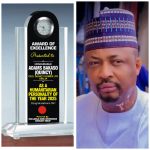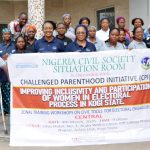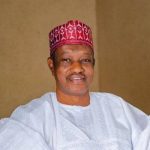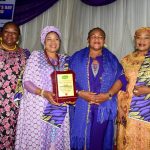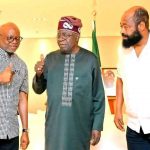What Are You Celebrating, While Nigeria is Temporarily Out of Service?
By Bala Salihu Dawakin kudu
Nigeria is at a crossroads, struggling with numerous challenges that have caused widespread frustration and disillusionment. Despite the ideals of democracy, as envisioned by Abraham Lincoln—”government of the people, by the people, and for the people”—it seems that the promises of this system are far from being realized for many Nigerians. Democracy, which should serve as a tool for equity, representation, and fairness, has instead become a source of division, with the vast majority of citizens feeling alienated from the political process.
Abraham Lincoln’s words remind us that democracy is meant to empower the people, giving them the ability to choose their representatives and ensure the equitable distribution of resources. But in Nigeria today, is that really the case? The basic tenets of governance seem to be faltering as we face issues of insecurity, economic instability, and crumbling infrastructure. The aspirations of democracy—equity, transparency, and inclusion—appear distant.
The question now is: What are we celebrating? In the midst of failing systems, widespread poverty, insecurity, and a widening gap between the rich and the poor, one would expect a moment of reflection rather than celebration. The current state of our nation demands sober introspection and prayer, not congratulatory messages to political associates and friends.
Those in power often live in privilege, born with silver spoons in their mouths, indifferent to the struggles of the average Nigerian. These leaders may celebrate because they are insulated from the harsh realities of life in Nigeria. Their wealth and status shield them from the crippling effects of fuel scarcity, inflation, and the ever-present threat of insecurity. But for the rest of us, the daily struggles of putting food on the table, accessing healthcare, and securing an education are constant reminders of the systemic failures we endure.
It is not a time to waste on empty gestures of goodwill to political figures or friends in high places. This moment calls for action and a return to the core values of governance. We must pray to Almighty Allah for guidance and for lasting solutions to the problems we face. Without divine intervention and genuine effort, our democracy will remain just an illusion, one that benefits the few at the expense of the many.
Nigerians must demand more from those in power. We must stop accepting mediocrity and begin holding our leaders accountable for the state of our nation. It is only by bending down in prayer, and standing tall in action, that we can push for the changes necessary to revive Nigeria’s democratic ideals.
Let us focus on rebuilding our nation, ensuring that the “government of the people” truly serves all its people, not just a privileged few. Instead of celebrating, let us reflect on our responsibilities and pray for the wisdom and courage to effect lasting change.
Democracy, by its textbook definition, is the government of the people, by the people, and for the people. It is a system where the will of the majority prevails, and elected representatives are meant to be servants of the electorate, entrusted with safeguarding their interests. However, in Nigeria, as well as in many parts of Africa, the practice of democracy has deviated far from its noble origins. What we see today is not a true representation of democracy, but a distorted version where the ‘mighty’ fraudulently impose themselves, depriving the people of their fundamental rights.
The architects of democracy envisioned a system where justice, fairness, and the will of the people would be upheld. Unfortunately, in Nigeria, democracy has become a tool in the hands of power-hungry politicians. These individuals, desperate to cling to power by any means necessary, have corrupted the system, turning elections into mere charades. Fraudsters have become key players in the political arena, subverting the will of the people and undermining the foundations of democracy.
From the collapse of democracy during the First and Second Republics to the current disintegration of the system, the trend has remained the same. The failure of those entrusted with upholding democratic values has led to a cycle of decay, leaving the people disillusioned and disenfranchised. The political landscape is now dominated by desperadoes who are willing to employ any tactic—whether through manipulation, violence, or bribery—to secure public office.
Government agencies and institutions that were created to safeguard democracy and ensure sanity in the political process have also been compromised. The electoral umpire, which should be the beacon of transparency and fairness, has often been accused of subverting the will of the people. In many instances, candidates who were clearly rejected by the electorate are declared winners, while the true victors are left helpless.
The judiciary, often referred to as the last hope of the common man, has not fared any better. Rather than serving as a bastion of justice, it has become complicit in legitimizing fraudulent elections. Using technicalities and legal jargon, the judiciary has ratified results that are far removed from the people’s mandate. When the very institution responsible for upholding the law turns a blind eye to justice, what recourse is left for the masses?
In the face of these challenges, one must ask: Why do Nigerians continue to waste resources and energy sending congratulatory messages for Independence Day celebrations? Who is truly free in Nigeria? The reality is that insecurity, poverty, fuel crises, hunger, and corruption have all worsened over the years. Educational institutions are in shambles, healthcare is in disarray, electricity is unreliable, and food prices have skyrocketed. Meanwhile, the streets are filled with beggars, and the national currency, the Naira, is in a dire state.
As Nigeria marks yet another Independence Day, there is little cause for celebration. Instead, it is a time for deep reflection. The current state of the nation calls for more than just speeches and parades; it demands sincere prayer and divine intervention. The leaders who have been entrusted with the people’s welfare have failed, and the system meant to check their excesses has collapsed.
Perhaps, rather than indulging in empty celebrations, Nigerians should turn to their places of worship—mosques, churches—and seek the face of Almighty Allah for lasting solutions. It is time for a collective plea for divine intervention because human efforts, corrupted by greed and selfishness, have fallen short. If the leaders are not willing to be fair to the people, then the people must turn to a higher power for justice, mercy, and a way out of this seemingly endless quagmire.
As we reflect on the state of our democracy, we must remember that change begins with a collective will. Until those in power are held accountable and the true essence of democracy is restored, Nigeria will continue to grapple with the same problems year after year. Only through a renewed commitment to justice, fairness, and integrity can the nation hope to rise above its current challenges. In the meantime, prayer remains a powerful tool, and perhaps, it is the only hope left for a country in desperate need of redemption.
As Nigeria marks her 64th independence anniversary, the country finds itself in a state of hopelessness, not because of a lack of potential, but due to the actions of a few who have plundered the nation’s resources with impunity. These individuals treat Nigeria as their personal enterprise, where the lines between public wealth and private fortune blur, leaving the masses in a perpetual cycle of poverty and despair.
In no other country can you find the bizarre phenomenon of politicians being wealthier than successful businessmen. Here, those entrusted with the public trust amass fortunes so staggering that they dwarf the budgets of entire states. Despite this, they walk free, unscathed by the law, while the poor and vulnerable face the full weight of the system. A young man caught stealing a phone may be jailed or even subjected to brutal jungle justice. Meanwhile, those responsible for siphoning billions of naira from public coffers are celebrated, eulogized, and surrounded by security operatives as if they were national heroes.
Nigeria’s educational system has suffered tremendous harm, and ironically, the very individuals responsible for its decline are those who once benefited from government scholarships both at home and abroad. At their youthful age, these leaders were given opportunities to study without financial burden, and upon their return, they were guaranteed employment. Today, they have systematically made quality education inaccessible to the average Nigerian.
Education, once the great equalizer, has now become a luxury. Public schools are underfunded, while private institutions flourish, accessible only to the elite. These leaders, having attained their wealth through a system they no longer support, have condemned future generations to mediocrity and ignorance. Is this the independence we should celebrate?
Politics in Nigeria has become an all-comers’ affair. It is no longer about competence, vision, or a desire to serve the people; it is about wealth. The source of the money is irrelevant; what matters is how much you can spend to buy your way into power. Those with the most money control the political landscape, while the masses remain disenfranchised and powerless.
If Nigeria is truly to celebrate independence, there must be an overhaul of the entire system. This begins with addressing the corruption that has infiltrated every level of government, from the judiciary to the security agencies. There must be transparency in the retrieval and management of funds recovered from corrupt individuals. The Economic and Financial Crimes Commission (EFCC) and Independent Corrupt Practices Commission (ICPC) often boast about retrieving stolen funds, yet no one knows where this money goes or how it is used to benefit the people.
The removal of fuel subsidies, a move that has inflicted hardship on millions of Nigerians, must be reconsidered. The soaring cost of fuel has driven up the prices of essential goods and services, leaving many unable to afford basic necessities. If we are to restore hope in this nation, subsidies that protect the poor must be reinstated.
Finally, it is imperative that we demand accountability from the wealthiest individuals in our society, especially politicians whose fortunes far exceed the wealth of the states they govern. These individuals must be investigated and held to account for their unexplained riches. The notion that politicians can amass wealth far beyond their legitimate earnings must be challenged if Nigeria is to move forward.
As our leaders urge us to celebrate Nigeria’s independence, they must first deliver on the promises of independence: freedom from poverty, access to education, justice for all, and accountability from those in power. The time has come for leaders to provide food, shelter, and security to the people. It is only then that Nigerians can truly celebrate.
Until these fundamental issues are addressed, Nigeria’s independence will remain a façade—a dream deferred by the selfishness of a few. The people deserve better, and it is high time that the government prioritizes the welfare of the citizens over the interests of the wealthy elite.
Nigeria has had a long history of leadership, filled with towering figures of integrity, vision, and an unwavering sense of justice. Icons like the late Alhaji Sir Abubakar Tafawa Balewa, the nation’s first Prime Minister, who was a symbol of humility and commitment to the people; the visionary Late Chief Obafemi Awolowo, who built much of the foundation of Western Nigeria’s progress; the nationalist and unifier, Dr. Nnamdi Azikiwe; the dedicated Sir Michael Okpara, whose passion for development made him a force in Eastern Nigeria; the eminent Late Chief Justice Chukwudifu Oputa, who presided with wisdom, fairness, and justice; and even President Goodluck Jonathan, who conceded defeat in a bid to uphold peace and national unity.
But today, we ask: where are the leaders like them? Where are the honest and credible men and women who will stand for the people with integrity, unyielding to corruption and self-interest?
The Nigeria of today seems far removed from the ideals for which these men stood. It seems like every regime promises to address the inefficiencies of its predecessor, yet the cycle of failure persists. Corruption and personal gain overshadow public service, and the idea of serving the nation has become secondary. The judiciary, which should be the last bastion of justice, has also seen its credibility questioned. We yearn for judges like Late Chief Justice Oputa, whose fairness was beyond reproach, and whose rulings were a beacon of integrity. Where are the erudite and incorruptible judges of our time to dispense justice without fear or favour?
Our parliamentarians, too, seem lost in this quagmire. The sacred duty of upholding the Constitution, creating laws that defend the rights and freedoms of citizens, has often been reduced to political maneuvering. Where are the God-fearing parliamentarians who will defend the Constitution and ensure the sanctity of the law?
As Nigerians, we must ask ourselves the hard questions: has the democratic system failed us? Democracy, a system meant to represent the people and safeguard their rights, seems increasingly riddled with corruption and inefficiency. If every new government claims to be the answer, but soon becomes another case study in failure, then perhaps it is time to reflect on alternatives.
Should we, as a nation, begin to consider a form of theocracy — a system ruled by the divine guidance of God? Democracy, after all, is a human construct, and as with all human systems, it is imperfect and prone to abuse. Perhaps a theocracy, rooted in faith and moral absolutes, could offer the discipline and integrity that our leaders have failed to exhibit. But is this a realistic or desirable option? And more importantly, can a theocratic system align with the diverse nature of Nigeria, a nation of multiple faiths and cultures?
Nigeria is at a crossroads, and we must decide on a solution to the systemic problems that plague our nation. Some say, “Don’t vote for the APC, vote for the PDP or LP.” But history has shown us that politicians, once in power, often forget the people they are meant to serve. Party lines blur as leaders cross-carpet from one party to another, driven by personal interests, not national development.
So what is the solution? Perhaps it lies not in political systems or parties but in something more fundamental — a return to God. A collective submission to the will of the Almighty, whether through prayer, fasting, or a national spiritual awakening, may be the key to addressing our deep-rooted problems. Perhaps, instead of congratulating each other on yet another Independence Day, we should bow our heads in solemn prayer, asking for divine intervention to heal our nation.
Whether Christian or Muslim, we must come together in our faith, turn to our holy books — the Qur’an or the Bible — and seek God’s guidance. If we, as a nation, set aside a week for national prayer, we could spark the divine intervention we so desperately need.
Our problems are too great for any one man, government, or political party to solve. Corruption, injustice, and selfishness have run too deep for political remedies alone. As we stand on the brink, let us remember that true change comes from a higher power. If we seek divine guidance and unite in prayer, we may yet find the solution to Nigeria’s problems.
Let us not waste time and resources on empty celebrations. Instead, let us humble ourselves, ask for God’s mercy, and take the first step toward real and lasting change for Nigeria.
Thanks.
Bala Salihu Dawakin kudu
Northern Bureau Chief
Democracy Newsline Newspaper Email balasalihudawakinkudu@gmail.com. 08060017834

